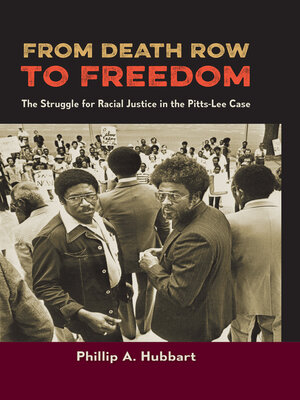From Death Row to Freedom
ebook ∣ The Struggle for Racial Justice in the Pitts-Lee Case
By Phillip A. Hubbart

Sign up to save your library
With an OverDrive account, you can save your favorite libraries for at-a-glance information about availability. Find out more about OverDrive accounts.
Find this title in Libby, the library reading app by OverDrive.



Search for a digital library with this title
Title found at these libraries:
| Loading... |
Florida Book Awards, Silver Medal for Florida Nonfiction
An insider's account of a wrongful conviction and the fight to overturn it during the civil rights era
This book is an insider's account of the case of Freddie Pitts and Wilbert Lee, two Black men who were wrongfully charged and convicted of the murder of two white gas station attendants in Port St. Joe, Florida, in 1963, and sentenced to death. Phillip Hubbart, a defense lawyer for Pitts and Lee for more than 10 years, examines the crime, the trial, and the appeals with both a keen legal perspective and an awareness of the endemic racism that pervaded the case and obstructed justice.
Hubbart discusses how the case against Pitts and Lee was based entirely on confessions obtained from the defendants and an alleged "eyewitness" through prolonged, violent interrogations and how local authorities repeatedly rejected later evidence pointing to the real killer, a white man well known to the Port St. Joe police. The book follows the case's tortuous route through the Florida courts to the defendants' eventual exoneration in 1975 by the Florida governor and cabinet.
From Death Row to Freedom is a thorough chronicle of deep prejudice in the courts and brutality at the hands of police during the civil rights era of the 1960s. Hubbart argues that the Pitts-Lee case is a piece of American history that must be remembered, along with other similar incidents, in order for the country to make any progress toward racial reconciliation today.
Publication of this work made possible by a Sustaining the Humanities through the American Rescue Plan grant from the National Endowment for the Humanities.






